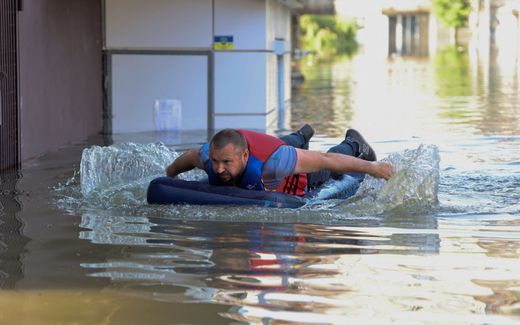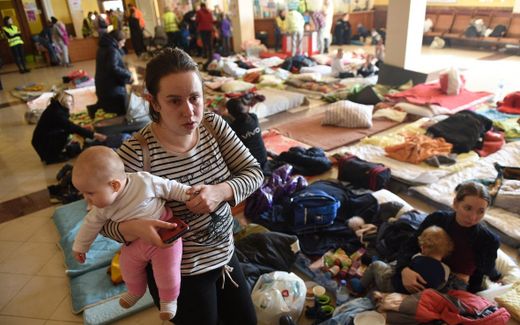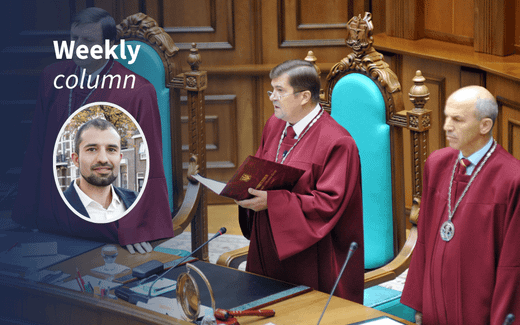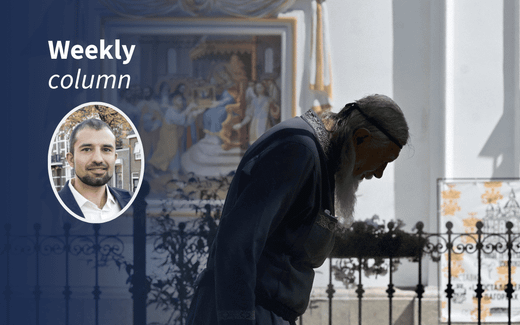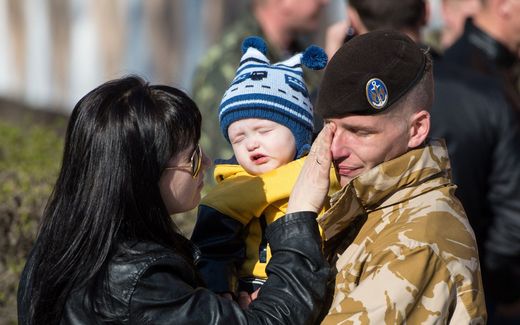Life in Ukraine can only be lived one day at a time: “We are learning to be grateful to the Lord”
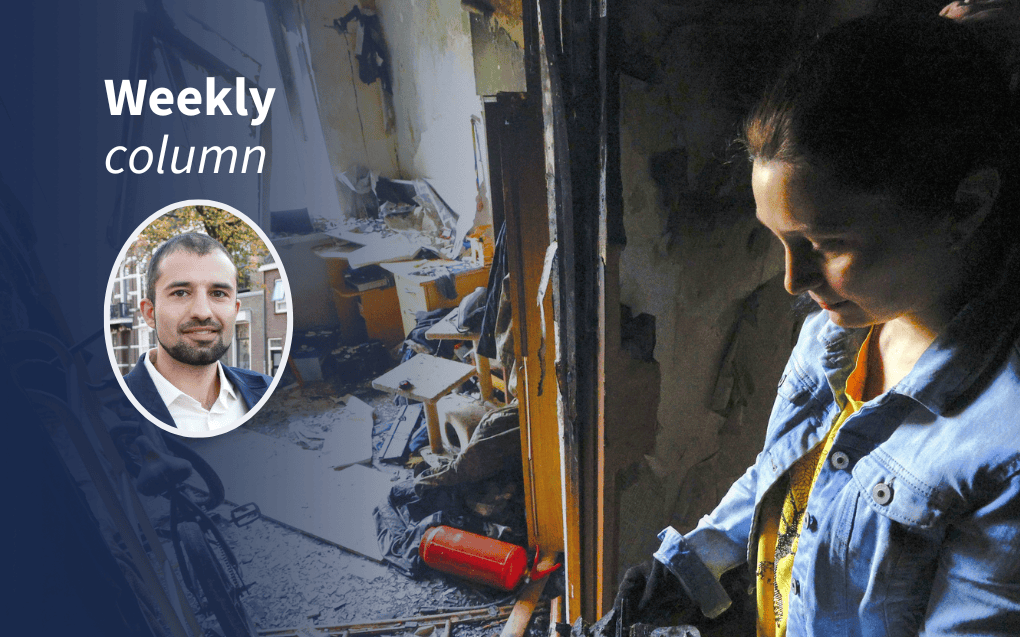
A resident handles drone debris inside her damaged flat in a five-storey residential building struck by a drone in Kyiv, Ukraine. Photo Canva.com, EPA, Sergey Dolzhenko
Christian Life
As people, we tend to plan our lives ahead carefully. However, when it becomes war, this changes very much. After each night, full of drone attacks, there is a particular joy in the fact that there is another day to glorify God, Oleksii Blyzniuk from Ukraine writes.
During the Second World War, the first to die in Nazi concentration camps were those who hoped for a quick liberation, the Austrian psychiatrist, neurologist and philosopher Viktor Frankl, wrote in his book Man’s search for meaning. Frankl, a camp survivor himself, also discovered that when reality failed to meet their expectations, these people broke down and lost their faith.
Next to falter were those who lost hope altogether, despairing that the madness would ever end. The greatest chance of survival belonged to those who focused less on timelines and expectations and instead concentrated on the meaning of the present moment — helping others, maintaining inner freedom, and nurturing spiritual life even in dire circumstances.
I think this principle is more relevant than ever for Ukraine today: to trust God and live one day at a time. Mainly because the war continues, and for now, its end is not in sight.
Prophesies
What makes the situation unbearable for many is not only the war's unpredictability but also the constant speculation and pseudo-predictions by various bloggers and politicians. They mess with people’s minds.
My wife has repeatedly shown me, with a certain disappointment and a hint of sarcasm, yet another “guru, close to the primary sources”.
Several times already, there have been such “unjustified prophecies” about the end of the war in Ukraine. One of the latest “prophecies” came from well-known politicians who interact closely with people and have a relatively complete picture of the situation from both the international stage and the home front. They spoke about the war ending (or at least its active phase ending) sometime at the end of spring or the beginning of summer 2025. This was stated more than once in the public sphere.
My wife has repeatedly shown me, with a certain disappointment and a hint of sarcasm, yet another “guru, close to the primary sources” on TikTok or Instagram who, once again, eloquently argues and explains why the war will almost certainly end during the period he mentions.
Misleading
Many people who are simply exhausted morally, mentally, emotionally, and physically take such forecasts quite seriously. But then the beginning of summer arrives, and nothing happens. The war just continues.
And this becomes even more unbearable and destructive for those who hoped, expected, dreamed, and made plans. I do not rule out that Russia’s disinformation machine may well resort to similar shake-ups of our society. But it is hardly the case that our politicians or bloggers are deliberately misleading people.
The problem is that war has many facets, and the situation can change unpredictably in a matter of days.
The problem is that war has many facets, and the situation can change unpredictably in a matter of days. Apparently, some projections were based on conditions that seemed sufficient and stable enough to allow such forecasts. But then everything goes haywire, and the war simply goes on.
Sleepless nights
However, Christians should not struggle with this as much. After all, we constantly emphasise that no one knows precisely when the end will come. For us, such forecasts almost always mean that the war will not end in the stated period and may even become worse than it is now. Therefore, we are simply learning to place our hope in God even more — no matter how convincing and well-grounded the next “prophecy” about the end of the war may sound.
Yet, even with this awareness, our daily lives do not become any easier because Christians are ordinary people, too: we grow weary of sleepless nights during constant nighttime air-raid alerts and of the distorted daytime schedules that follow such nights.
At present, the war has not only failed to end at the beginning of summer, as many predicted but is continually escalating into harsher phases. Previously, we could still rely on the “two-wall rule” when Shahed drones attacked cities. At night at least, we were advised to shelter in our flats and houses so that there should be two walls from the hiding place to the outside. This was supposed to protect us.
Before, an alert would last two or three hours; now, it often lasts almost all night.
Now, that no longer works. Drones have become faster and harder to shoot down, and their warheads are larger and more powerful. Strikes on residential buildings and high-rises are increasing, and the chances of surviving such a hit are almost zero. The number of drones attacking cities each night is also growing. Because of this, people now hide in metro stations, building basements, or underground parking garages.
Before, an alert would last two or three hours; now, it often lasts almost all night — until ten or eleven in the morning. That is exactly rush hour when everyone needs to get to work. Yet, public transport is halted because of the alert, leading to another traffic collapse in the city for several hours. You can easily imagine life in such a mode. But this is our reality.
Church
Along with the drones, the ballistic shelling is also becoming heavier. A couple of weeks ago, missiles struck just a few hundred meters from our Reformed church. In the morning, the pastor, who lives on the church property, filmed a video of four-meter-wide craters from the explosion in the nearby park.
Interestingly, the blast blew out the windows in the surrounding buildings that encircle the church. However, inside the church, only a little plaster fell from the ceiling, and all the windows remained intact. The pastor’s family also spends the nights in the church basement. Despite all this, every service and preaching take place according to the regular schedule.
At the same time, every church member subconsciously understands that this mode of ministry looks more like survival. Therefore, we learn to value one another even more and to appreciate what we can do for one another. Perhaps this will sound strange, but after such nights, there is a certain joy in the fact that you and your family have survived another attack and that there is another day to glorify God.
Yet, it is pretty challenging to engage in everyday duties. Sometimes during the day, you have to lie down and sleep two or three more times, even for ten minutes, just to recover a little.
But for now, this is our reality, and we are learning to be grateful to the Lord for each day. We are learning to live one day at a time, trusting God to lead our lives.
Related Articles



